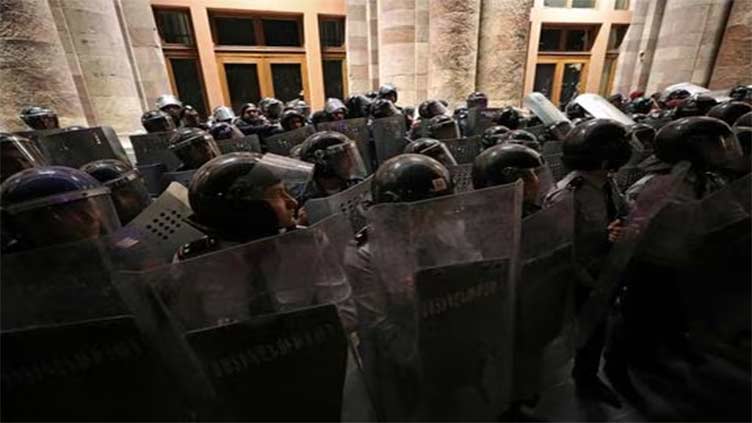Azerbaijan says it sees amnesty for Karabakh fighters who lay down arms

World
Ethnic Armenians in Nagorno-Karabakh said they needed security guarantee before giving up their arms
GORIS, Armenia (Reuters) – Azerbaijan envisages an amnesty for Karabakh Armenian fighters who give up their arms, though there have been some Karabakh military units which have said they will continue their resistance, an Azeri presidential adviser told Reuters.
Ethnic Armenians in Nagorno-Karabakh said on Thursday they needed security guarantees before giving up their weapons after Azerbaijan declared it had brought the breakaway region back under its control after a 24-hour military operation.
Azerbaijani President Ilham Aliyev on Wednesday said his iron fist had consigned the idea of a separate ethnic Armenian Karabakh to history and that now the region would live in "paradise" as part of Azerbaijan.
Hikmet Hajiyev, foreign policy adviser to Azerbaijan's president, told Reuters in a television interview that Baku envisaged an amnesty for those Karabakh fighters who gave up their weapons.
"Even with regard to former militaries and combatants, if they can be classified in such a way, and even for them we are envisaging an amnesty or alluding to an amnesty as well," Hajiyev said.
Karabakh Armenian rights would be respected as part of their integration into Azerbaijan, he said, adding that they had requested humanitarian support as well as oil and gasoline supplies. Three cargos of humanitarian help would be delivered to the region on Friday, he said.
"Currently we are seeing that some individual army groups and officers that made the public statements that they won't come to our terms and will continue resistance," he said.
"We also see that some minor groups are going to the forest," he said. "But we do not see that to be the biggest challenge, and big security challenge. Of course this will cause certain challenges and difficulties but not on a such a big scale."
Karabakh is internationally recognised as part of mainly Muslim Azerbaijan, but its Christian Armenian population has held de facto independence since breaking away in a war in the 1990s as the Soviet Union collapsed.
Many of the 120,000 Armenians of Karabakh say they have been abandoned by Russia, the West and Armenia itself - and have repeatedly said they fear persecution at the hands of Azerbaijan, which is supported by Turkey.
Armenian Prime Minister Nikol Pashinyan said that Armenia was prepared to accept refugees from Nagorno-Karabakh.
Azerbaijan's claim of victory over the region ushers in yet another twist to the tumultuous history of mountainous Nagorno-Karabakh, which over the centuries has come under the sway of Persians, Turks, Russians, Ottomans and Soviets.
It could also change the delicate balance of power in the South Caucasus region, a patchwork of nations and ethnicities where Russia, the United States, Turkey and Iran are jostling for influence.

